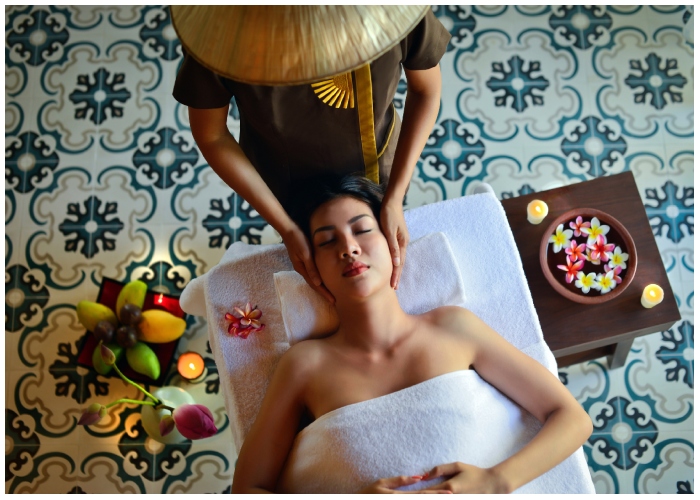In 2025, the most luxurious getaway isn’t a packed adventure trip or a nonstop party in a new city—it’s a good night’s sleep. A new wave of travel called sleep tourism is rising fast, and it’s all about rest, relaxation, and recovery. From hotels offering sleep concierges and personalized bedtime rituals to resorts that build entire wellness programs around better rest, sleep is no longer an afterthought—it’s the main attraction.
With burnout, overstimulation, and sleep disorders at all-time highs, travelers are craving more than a place to stay—they want a place to truly recharge. Sleep-focused getaways are answering that need in the most calming and luxurious ways.
What Is Sleep Tourism?
Sleep tourism refers to travel that’s specifically designed to improve your rest. The goal isn’t sightseeing or excitement—it’s deep, uninterrupted sleep and total relaxation. This can take many forms, including:
- Hotels with blackout rooms and soundproofing
- In-room sleep tech like white noise machines, smart beds, and temperature control
- Personalized sleep consultations and coaching
- Guided meditations, gentle yoga, and bedtime massage
- Sleep-focused menus and herbal tea services
Some luxury destinations now offer full “sleep retreats,” with programs that include circadian rhythm assessments, melatonin-friendly lighting, and daily schedules structured to reset your body clock.
Even airlines are getting in on the trend—offering upgraded sleep pods and nap kits for long-haul flights to support passengers’ rest while traveling.
Why Sleep Is a Travel Priority in 2025
So why is everyone suddenly booking vacations just to sleep?
One major reason is that poor sleep has become a modern epidemic. According to global health data, millions of adults are sleeping fewer than six hours a night—and suffering the mental and physical consequences. Stress, screen time, work pressure, and urban noise all contribute to chronic restlessness.
Rather than waiting until exhaustion takes a toll, people are starting to see sleep as a health priority. And instead of blowing off steam with late nights and jam-packed travel itineraries, many are now planning vacations to recover, not wear themselves out more.
Add to that the influence of social media wellness influencers, celebrities sharing their sleep routines, and wearable tech tracking every movement—and sleep has officially entered the mainstream wellness conversation.
In 2025, sleep isn’t boring—it’s the ultimate luxury.

What These Sleep-Focused Experiences Offer
The best part about sleep tourism is that it’s both relaxing and surprisingly high-tech. Many top-tier hotels and wellness resorts now invest in advanced features to ensure guests sleep better than they ever could at home.
Some common offerings include:
- AI-powered mattresses that adjust firmness and temperature throughout the night
- Custom aromatherapy diffusers with calming scents like lavender or chamomile
- Circadian lighting systems that shift from warm to cool tones based on time of day
- Pillow menus—yes, guests choose the exact firmness or filling they prefer
- In-room sound therapy with options for white noise, ocean waves, or binaural beats
- Pre-sleep relaxation sessions, like guided breathing or massage
Even budget and boutique hotels are beginning to promote sleep as a selling point—providing high-thread-count sheets, blackout curtains, and silent room environments to compete with luxury brands.
Who’s Booking Sleep Retreats?
You don’t need to be rich or burned out to enjoy a sleep-centered trip. Sleep tourism appeals to all kinds of travelers:
- Professionals who want to reset after busy months of meetings and deadlines
- Parents needing real rest after years of broken sleep
- Digital nomads balancing time zones and constant connection
- Health-conscious travelers seeking mental clarity and wellness without strict fitness routines
- Couples looking for a quiet, intimate escape from their everyday stress
In fact, many guests report that a sleep-focused vacation helps them return to daily life more energized, creative, and emotionally balanced.
The Bigger Shift: Valuing Rest
Sleep tourism reflects a larger cultural shift happening in 2025—one that challenges the old idea that being busy and tired means you’re successful. Instead, more people are choosing to value rest, protect their peace, and design lifestyles that support long-term wellness.
Rest is no longer something you earn after burning out. It’s something you build into your routine—and in this case, into your travel plans.
As wellness becomes more personalized and intentional, people are realizing that a good night’s sleep may be the most healing thing of all.
Sleep tourism is a growing trend that prioritizes rest and relaxation over constant activity and connectivity. In 2025, travelers may prioritize sleep-focused vacations for a rejuvenating experience.